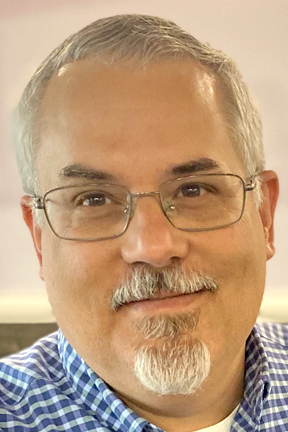Serving • Acts 6:1-15
By Roland L. McMillan

As Acts 6 opens, the Jerusalem-based early church was growing quickly. The high priest and his group opposed them, but the people, in general, did not. The church had a common fund to take care of their poor. They were living out Jesus’ instructions found in Luke 12:33, living up to the Old Testament ideal of Deuteronomy 15:4. Then, a problem arose: the Greek-speaking widows were being neglected in the day-to-day administration of the common fund. Their basic needs were not being met. Verse one mentions two groups: the Hellenists and the Hebrews. The Hellenists were Greek-speaking Jews who had moved to Jerusalem from elsewhere in the Roman Empire. Greek was the everyday language of business and commerce in the Empire, like English is the default language of international business today. The Hebrews were Aramaic-speaking natives of the area. Since language reflects culture, and since the Hellenists were an immigrant community, we can assume safely that their differences went beyond language. Misunderstandings are almost impossible to avoid in a situation like this one.
The rapid growth of the early church (Acts 4:4, 5:14) naturally led to organizational challenges.
If the apostles had tried to do everything and to please everyone, then they would have neglected their unique role in the church. Their focus had to be on prayer and on the ministry of the word. So, the apostles proposed a solution. They would delegate responsibility. The people would choose seven men who were “full of the Spirit and of wisdom” (Acts 6:3) to serve the church and to solve the problem. They were looking for mature Christians. The people accepted the proposal, chose the men, and installed them in this ministry. The names of the men suggest that they were native Greek-speakers, perfect for helping the Greek-speaking widows, but the plan they followed was more than good common sense. Behind this section of Acts 6, there are echoes of Exodus 18, Numbers 11:16-30, 27:16-23, and Deuteronomy 34:9. The plan proposed by the apostles and accepted by the church was scriptural. This story is a wonderful model for addressing challenges inside the church.
The next problem in Acts 6 came from outside the church. Opponents of the gospel focused on Stephen, one of the men who had been chosen to serve the church by administering the common fund. Other immigrants from a synagogue confronted him, but they were not successful. At this time, immigrants to Jerusalem often were more zealous than the natives. Stephen’s character was solid, so they resorted to sneaky and underhanded methods to attack him. Luke did not tell us how long the opposition to Stephen was building, but we can imagine what it was like. The gossip network was working. People were talking. The stirrers were stirring up trouble. For the first time in Acts, the common people turned against the early church. All kinds of people were incited to join the opposition. Stephen was hauled in front of the Sanhedrin and confronted by false witnesses. The charges were serious, but Stephen was only guilty of being faithful. Soon, he would be a martyr. In the meantime, his face changed to look like an angel’s face, that is, like the face of a messenger from God. As the story continues later in Acts, Stephen’s death would result in the gospel message spreading even more (Acts 8:4).
Churches of all times and all places face the same kinds of problems described in Acts 6, at least in a general sense. Organizational problems and administrative challenges inside the church require mature Christians to address them, full of the Spirit and full of wisdom. Good common sense can only take us so far in these situations. Like the early church, our solutions should be scriptural. We also face opposition from outside the church. In many parts of the world today, Christians still suffer and sometimes die for the faith. Those of us who are older have watched attitudes in our society about the church change radically. We can face all kinds of challenges from the outside, but the same Spirit who was leading the early church is leading the church today. God has his master plan. Like Stephen, our job is faithfulness. God will take care of the rest. In the long run, the gospel continues to spread. Opposition to the gospel never wins.
McMillan is pastor of Prentiss Church, Prentiss.




